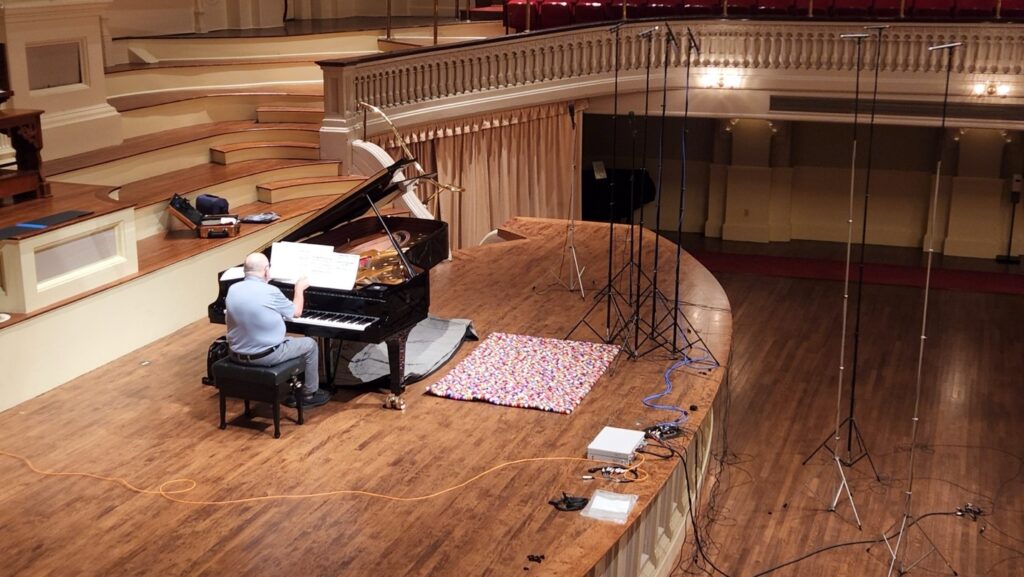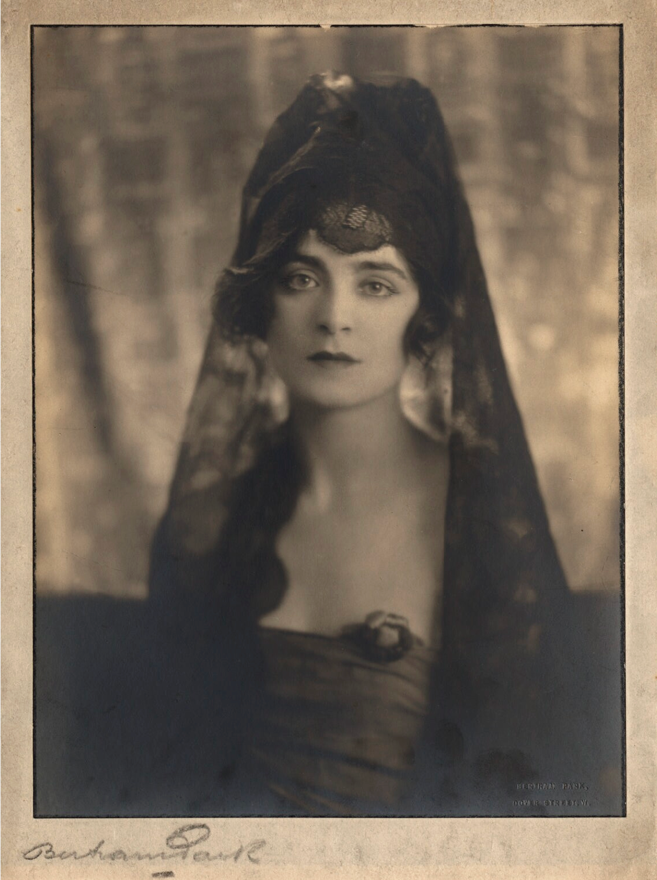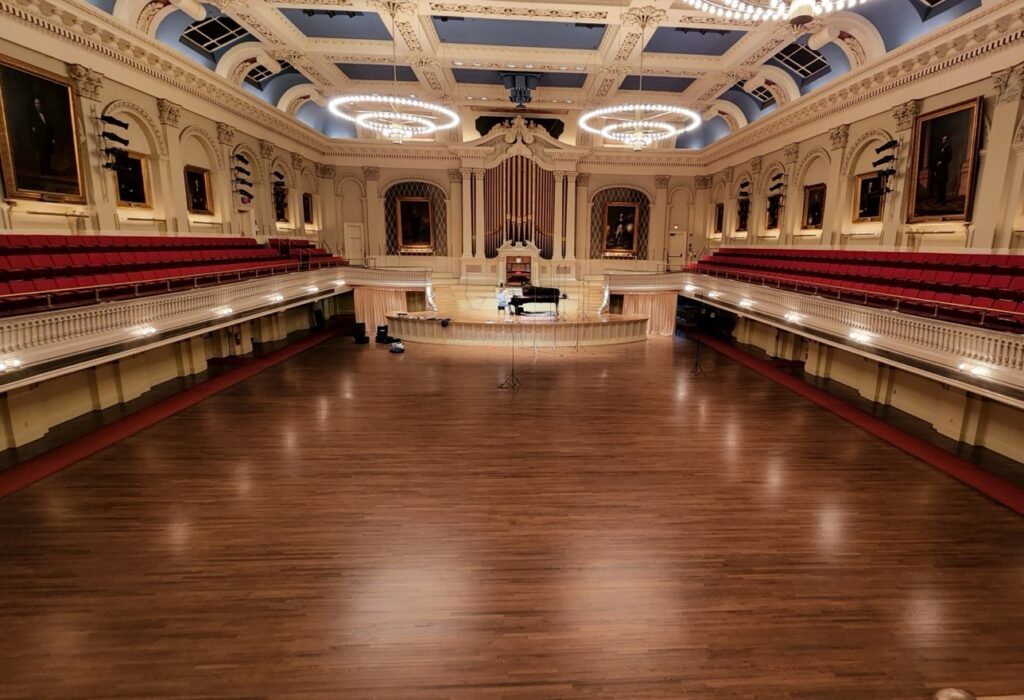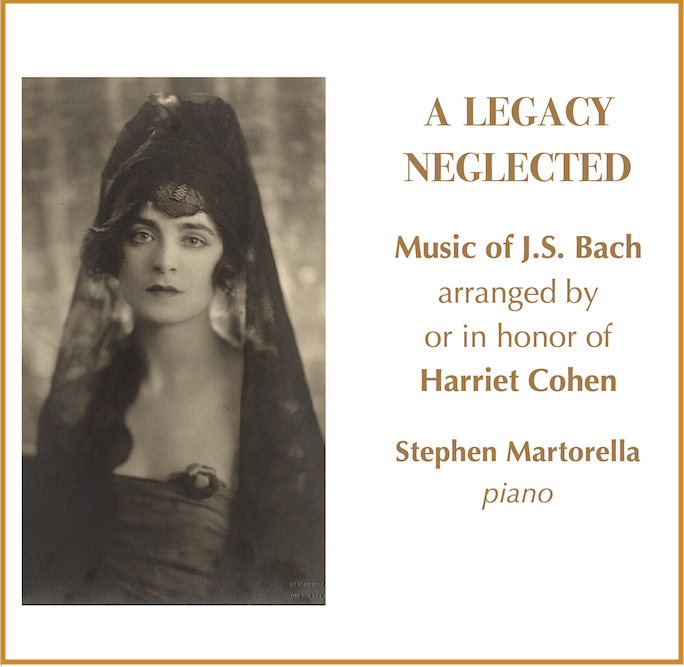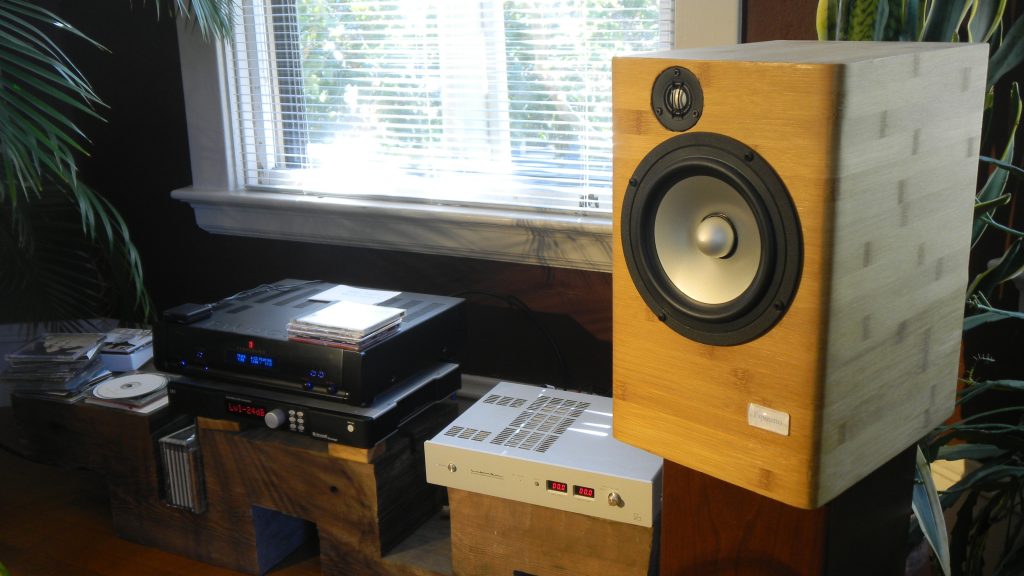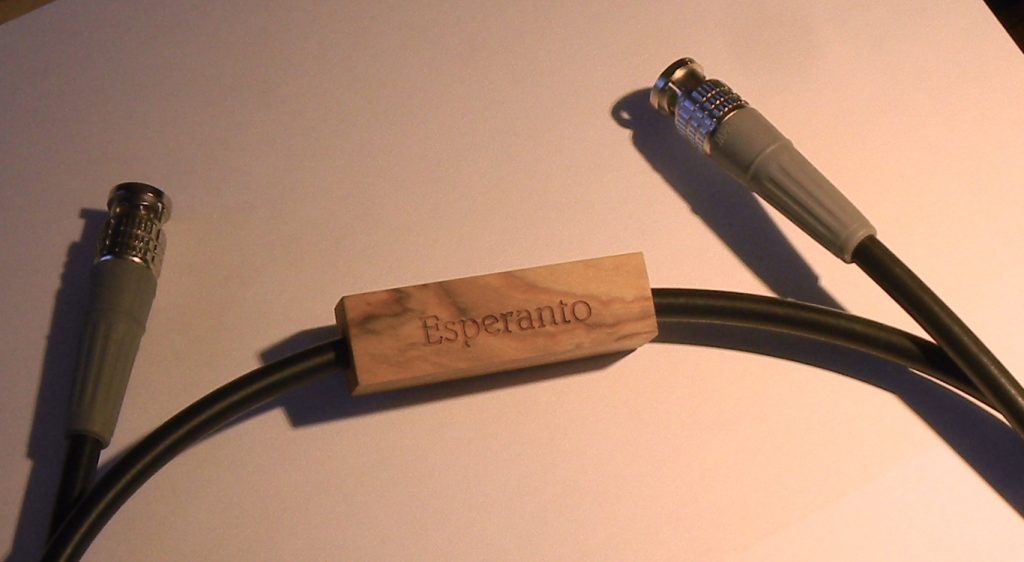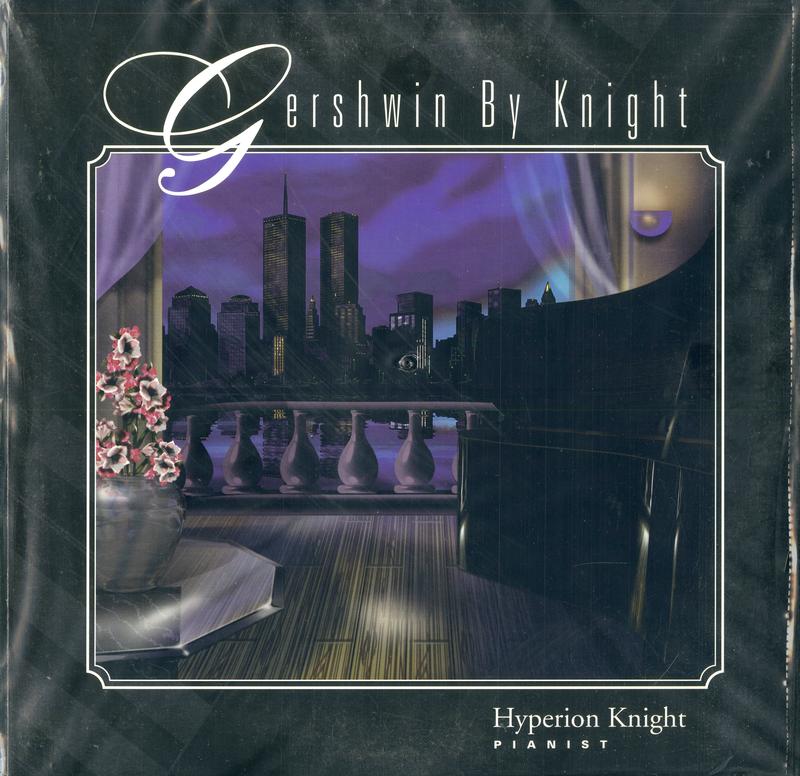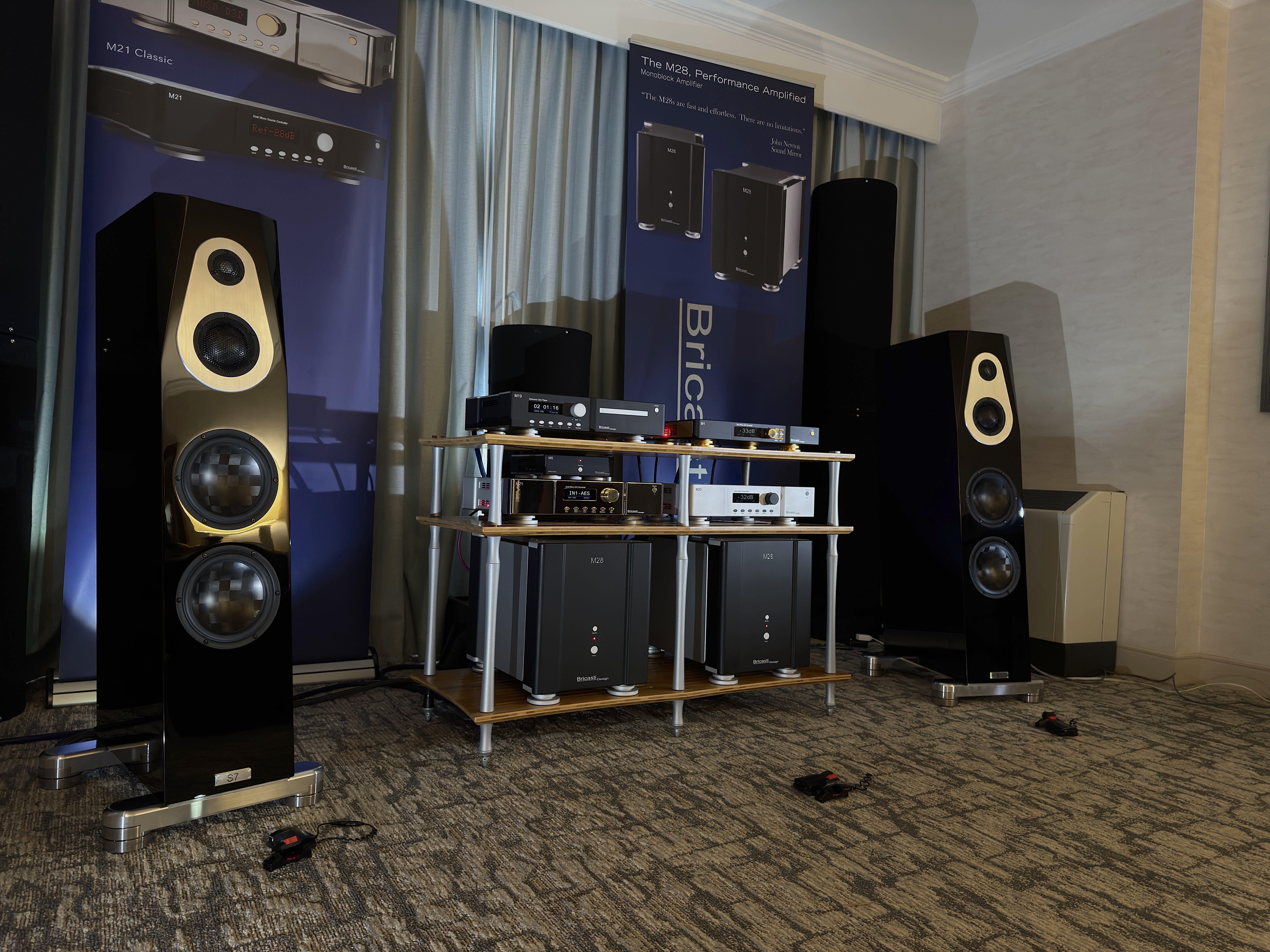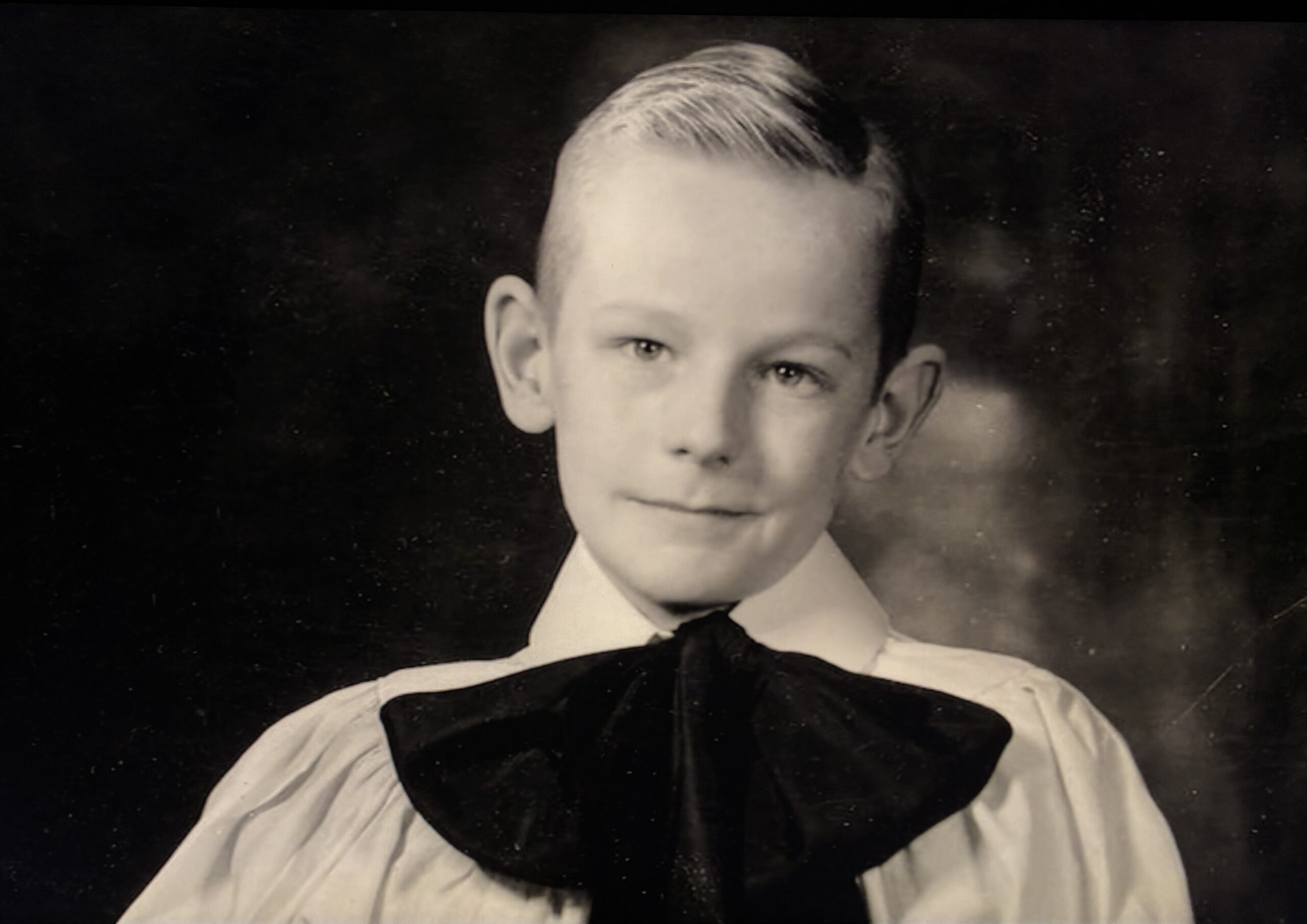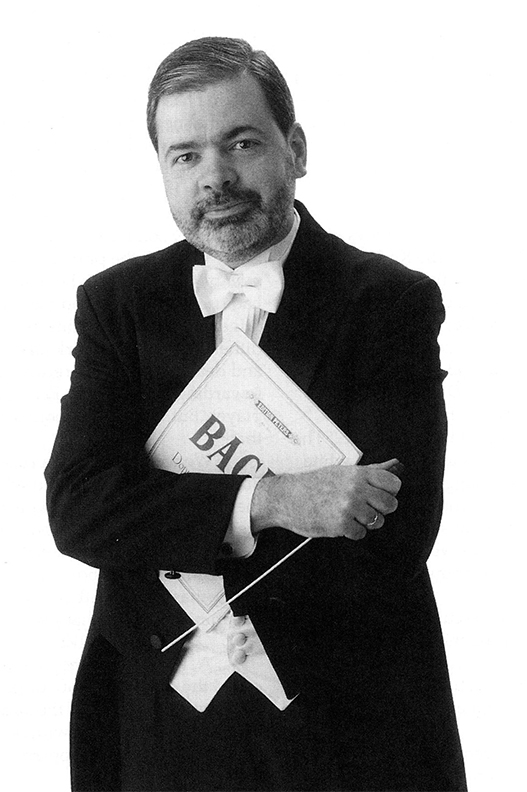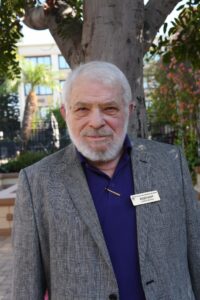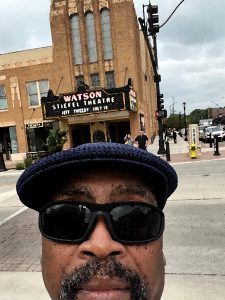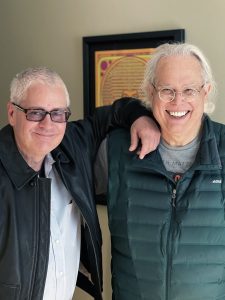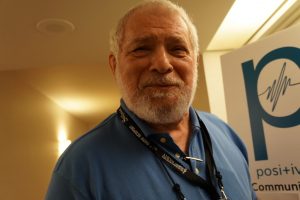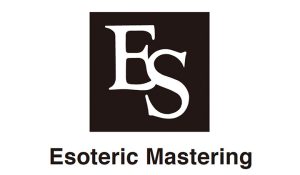Martorella Mechanics' Hall photo, "Birdseye of Steve copy. Photo courtesy of John Quick
Dear Friends,
I was an amateur reel-to-reel tape recordist from junior high-school on. I was fascinated by everything about record production. Undeterred by my relative ignorance (and total lack of practical experience), circa 1981, I set about trying to arrange a recording contract and début recording for violinist Arturo Delmoni. The connection being, that my then-girlfriend and his then-girlfriend were best friends. (Someone, anyone: Please cue up 10cc's "The Things We Do for Love.")
I recently saw that an eBay seller was asking $450 for a new, sealed 1991 John Marks Records Bob-Ludwig-Remastered LP of Arturo's first album, Songs My Mother Taught Me, originally out on North Star LP in 1986.
The JMR remastering was from the original at-session, in-machine 30-inches-per-second, half-inch, two-track stereo tapes. Those tapes had a unique record-and-playback EQ and noise-reduction system devised by recording engineer David Hancock. Whereas, the North Star LPs were almost certainly made from quarter-inch, 15ips "cutting copy" tapes. That's why my remastering sounds better. Also, my pressings were on 180-gram premium vinyl.
So, here we are today. In thirty, or sixty, or ninety days, I anticipate the commercial release of hi-res downloads of my "Swan Song" record-production effort. ("JIT" [Just In Time] CDR copies will be available, on request.) That project documents modern-piano transcriptions by various 20th-c. composers of early keyboard music, mostly of JS Bach; the one exception being Ralph Vaughan Williams' treatment of one Orlando Gibbons piece.
The unifying theme being, almost all the pieces have some connection to the British pianist and composer Harriet Cohen, (1895 – 1967). If you don't know Harriet Cohen, the short version is that she got the "Fuzzy end of the lollipop stick" (to use Miss Marilyn Monroe's deathless phrase), as a "woman on the side" of composer Arnold Bax.
Harriet Cohen, 1920
Doesn't she look as though she had been born for sorrow? When Bax's wife died, Bax revealed the even-younger woman he had been cheating on Harriet with. What a cad. Harriet was a celebrated Bach interpreter, and she authored several transcriptions.
If you want to do a very deep dive into Harriet's amazing life, connections, and accomplishments (e.g.: in 1934, in New York City, Harriet played a recital with Alfred Einstein (violin; Albert's cousin) to raise funds to help Jewish scientists escape Nazi Germany); read "A love supreme: The great love affair of Harriet Cohen and Arnold Bax." (Note, the Einstein/Cohen benefit recital's $25/each 1934 ticket price would be circa $600, in today's dollars.)
Seeing as my plan was that this recording would be my "Last Hurrah," I spared no expense. The engineer I hired (Mark Donahue, Soundmirror Inc.) has 14 "Best-Engineered Classical Recording" Grammys. The 9-foot Hamburg Steinway concert grand piano was hardly broken in. My guess is that today's replacement cost would be circa $250,000. The recording venue was Yo-Yo Ma's favorite place to record – Mechanics' Hall, in Worcester, Massachusetts. Rather imposing!
Martorella Mechanics' Hall. "5c. MCH High Long Shot copy." Photo courtesy John Quick
Oh! Yes; I myself did not play that piano. The pianist is Stephen T. Martorella.
I admit to being a bit obsessed with the idea of "Connections." Examples being, I am only one handshake away from Marilyn Monroe; one handshake away from John Lennon; one handshake away from Elgar, three handshakes away from Tchaikovsky, and four from Beethoven.
Whereas, Steve Martorella's prime piano teacher Nadia Reisenberg knew Rachmaninoff, and Rachmaninoff publicly praised her playing. Equally significant, Mme. Reisenberg had been a student of (and later, a teaching assistant of) Josef Hofmann, who was the only private student of the chap who had founded the St. Petersburg Conservatory in 1862, thereby founding the "Russian School" of pianism.
Other piano students of Mme. Reisenberg's include the legendary Beethoven specialist Richard Goode, John Williams (the film-score composer), and conductor Myung-whun Chung. (Stephen Martorella was also taught by Josef Raieff, Artur Balsam, and Murray Perahia.)
Here Steve is, trying out that piano:
Video by John Marks
He's playing Harriet Cohen's transcription of Bach's "Liebster Jesu, wir sind hier" ("Beloved Jesus, We Are Here"), BWV 731. Pretty good for iPhone audio, but… it's still iPhone audio.
So here's the same piece, from the recording session - Download HERE
By the way, there are two Bach pieces on this album that were not arranged by Miss Cohen. Two transcriptions by Steve, those being his transcription of the slow-movement Sarabande from Bach's last Cello Suite, No. 6 in D, and "Bist du bei mir," from the Anna Magdelena Bach Book, the melody of which was not written by Bach.
This project was recorded onto two stereo tracks and five multi-channel tracks, in 32-bit definition, and with a 352.8kHz sampling rate. What I am putting up into a Dropbox file is my rough edit from the CD-Quality file copies. The real editing, and the mastering, are in progress.
The outfit that is putting out this project has a policy of offering one free 24/96 hi-res track per new release. I assume that "Liebster Jesu" will be that track.
Here's the current estate of the title and the booklet cover (subject to change):
Thanks for reading!




